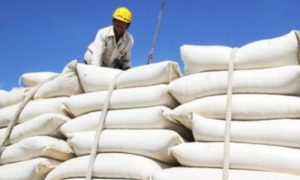Pakistan : Plan to increase Indonesia’s palm oil quota under study

Pakistan may increase its palm oil import quota from Indonesia as demand rises. September 2025 imports reached 343,162 MT, supporting food manufacturing and supply chain jobs. Indonesia supplies about 75% of Pakistan’s palm oil needs. Both nations are exploring local cultivation, sustainability standards, and biofuel cooperation to enhance long-term food and energy security.
ISLAMABAD: The government is planning to consider an increase in Indonesia’s palm oil quota following recent high-level interactions between the two countries, sources told Business Recorder.
Palm oil continues to be a cornerstone of Pakistan’s import basket, with September 2025 imports valued at USD 481 million, compared to USD 251 million in the same month last year.
According to trade data, Pakistan imported 343,162 metric tonnes (MT) of palm oil in September 2025, up from 266,218 MT in September 2024 — a significant increase reflecting sustained demand.
This steady import flow sustains an extensive logistics network — from ports and clearing agents to refineries, trucking firms, and warehousing operations — supporting thousands of jobs across industrial and distribution sectors.
Unlike intermittent commodity imports, consistent palm oil inflows underpin year-round economic activity across the supply chain.
Pakistan’s Fast-Moving Consumer Goods (FMCG) sector heavily depends on edible oil, with palm oil being the primary ingredient for Vanaspati ghee, cooking oils, bakery fats, shortenings, and instant foods. Given that domestic oilseed production meets less than 10 percent of national demand, Indonesian palm oil ensures market stability and prevents supply shocks.
Trade insiders note that Indonesia’s reliable shipping schedules and large export capacity enable Pakistani refiners and FMCG companies to plan long-term procurement, helping keep food inflation and production costs manageable. “Indonesian palm is not just a commodity — it’s a stabilizer,” said a senior industry source. “It ensures that Pakistani households continue to access affordable essentials.”
Pakistan consumes over three million tonnes of edible oil annually, and Indonesia currently supplies about 75 percent of its palm oil imports. Beyond trade, both nations are exploring ways to reduce dependency on imports. Pilot oil palm cultivation projects in Sindh and Balochistan, supported by Indonesian expertise, aim to localize part of the supply chain.
If expanded to around 60,000 hectares, local palm cultivation could attract substantial investment, create jobs, and promote value addition through joint refining and processing. Indonesia has also invited Pakistan to join the Council of Palm Oil Producing Countries (CPOPC) to deepen collaboration in research, sustainability, and food security, said Hadi Sugeng, Secretary General, Indonesian Palm Oil Association (IPOA).
The bilateral trade relationship is evolving beyond food. Indonesia’s successful B35 and B40 biodiesel programmes demonstrate how palm oil can strengthen energy security. The B40 initiative, rolled out in early 2025, blends 40 percent palm-based biofuel with diesel — producing 4.3 million kilolitres and saving an estimated Rs147.5 trillion in foreign exchange while reducing carbon emissions.
Indonesia’s 2025 biodiesel allocation stands at 15.6 million kilolitres, up from 13 million kilolitres last year, financed partly through palm oil export levies. For Pakistan, which spends billions annually on imported fossil fuels, Indonesia’s biodiesel model presents a potential roadmap for diversifying its energy mix while supporting sustainable agriculture.
The global palm oil market is tightening amid sustainability requirements and supply constraints. In March 2025, Indonesia raised its palm oil export levy to 10 percent, channeling funds toward biodiesel expansion and environmental safeguards. Meanwhile, the European Union’s deforestation-free regulations are reshaping trade flows, requiring traceable, transparent supply chains.
For Pakistan, future sourcing cannot be driven by price alone. Importers will need to prioritize suppliers that comply with No Deforestation, No Peat, No Exploitation (NDPE) standards and traceability frameworks to maintain access to financing and international partnerships. Pairing with Indonesian exporters already meeting these sustainability benchmarks will help safeguard Pakistan’s long-term supply security and global trade credibility.
As one trade official noted, “Palm oil is no longer just about food — it represents energy resilience, industrial growth, and sustainable partnership between Pakistan and Indonesia.”
To Read more about Edible Oil News continue reading Agriinsite.com
Source : Business Recorder















